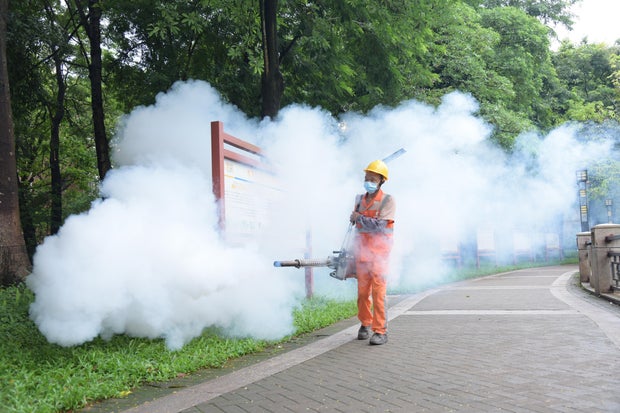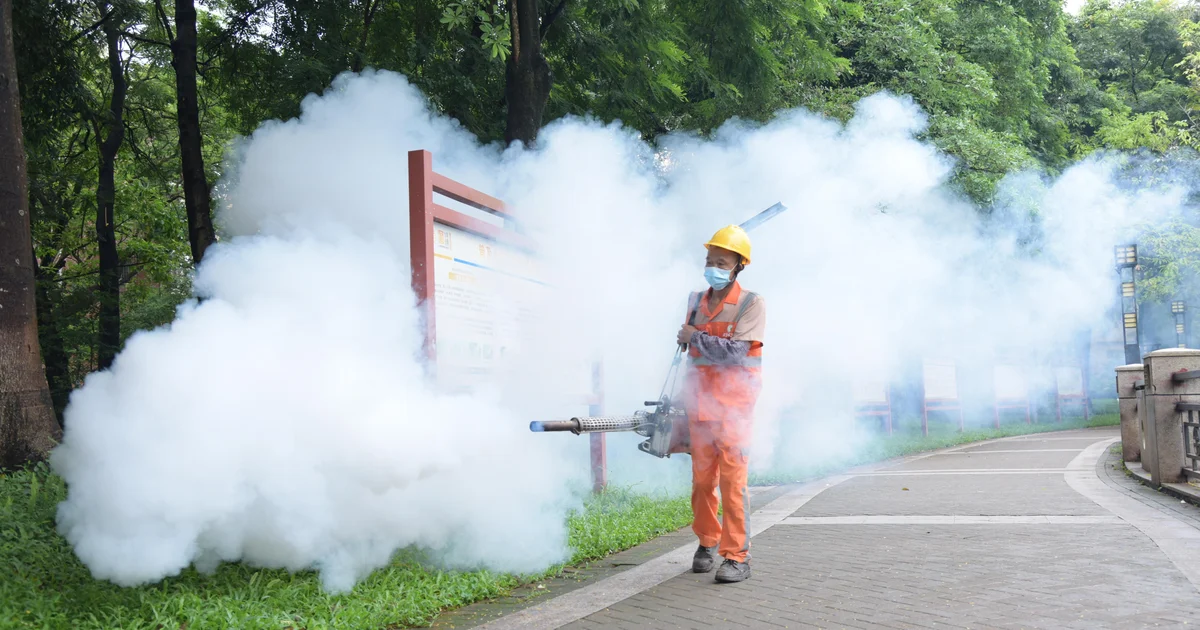August 6, 2025 / 10:43 AM EDT / CBS News
The United States is warning people traveling to China about chikungunya, a virus that spreads to humans through mosquito bites.
The Centers for Disease Control and Prevention has issued a Level 2 travel notice for people traveling to the country, urging them to “practice enhanced precautions.”
The notice, issued last week, says the chikungunya outbreak is in Guangdong Province, with most cases reported in the city of Foshan. In recent weeks, the region near Hong Kong has reported more than 7,000 cases.
“You can protect yourself by preventing mosquito bites, which includes using insect repellent; wearing long-sleeved shirts and pants; and staying in places with air conditioning or that have screens on the windows and doors,” the CDC says.
The chikungunya virus was first identified in Africa in the early 1950s, and the CDC has issued travel notices about it for multiple countries — currently including Bolivia, Kenya, Madagascar and Sri Lanka.

The virus causes a disease of the same name with symptoms including severe joint aches, fever and fatigue, which typically start three to seven days following a bite by an infected mosquito, the CDC says.
“Most people get better within a week; however, some can have severe joint pain for months to years following acute illness,” the agency says, noting death is rare.
Those most at risk for severe illness are newborns who are infected around the time they’re born, as well as adults 65 and older and people with conditions like heart disease and diabetes. Pregnant women are urged to reconsider traveling to impacted areas, as the virus can be passed to a baby before birth.
“The symptoms of chikungunya are similar to those of dengue and Zika, making chikungunya easy to misdiagnose and making it more difficult for countries to accurately determine the number of people infected,” according to the World Health Organization.
While the CDC notes there is no specific treatment, vaccines are available and recommended for people planning to visit an area with an outbreak of chikungunya.
Health officials in China have ordered mass measures to combat the virus, which is flourishing after once-a-century rainfall in southern China. Measures range from clouds of disinfectant to potential fines for people who don’t disperse standing water that accumulates in items like flower pots.
 A sanitation worker sprays insecticide to prevent the spread of chikungunya on Aug. 3, 2025, in Dongguan, Guangdong Province of China. VCG/VCG via Getty Images
A sanitation worker sprays insecticide to prevent the spread of chikungunya on Aug. 3, 2025, in Dongguan, Guangdong Province of China. VCG/VCG via Getty Images
Beijing has learned strict, fast containment lessons fighting SARS in 2003 and COVID-19 since 2019. Doctors have forced patients to stay in hospitals for seven days to stop further spread.
“The current situation is preventable, treatable and controllable,” Chinese Foreign Ministry spokesperson Guo Jiakun said.
The Associated Press contributed to this report.
Ramy InocencioRamy Inocencio is a CBS News foreign correspondent based in London, covering Europe and the Middle East. He joined the Network in 2019 as CBS News’ Asia correspondent, based in Beijing and reporting across the Asia-Pacific, bringing two decades of experience working and traveling between Asia and the United States.
